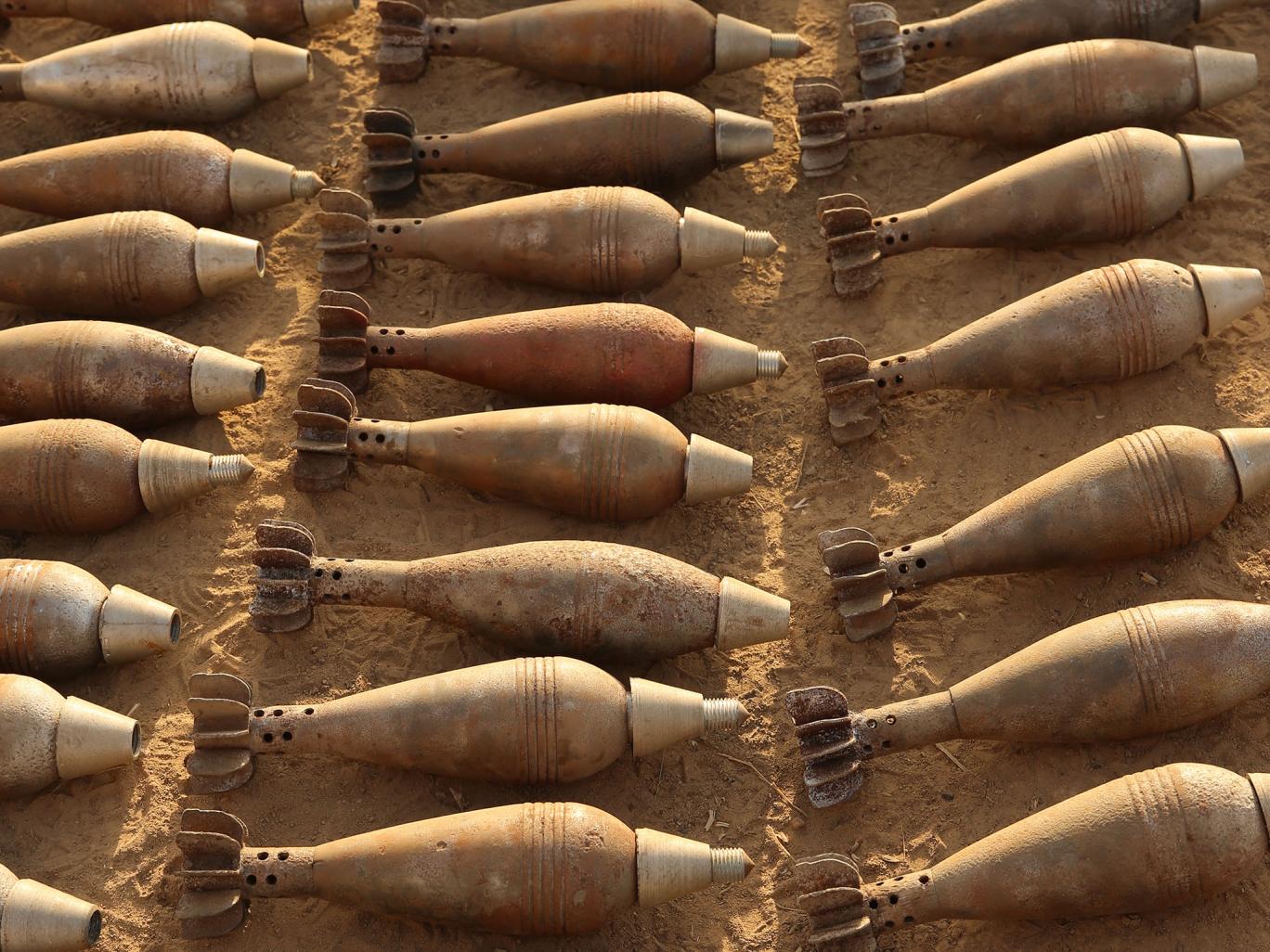Isis manufacturing military standard weapons on an 'industrial scale' in Iraq

Isis is developing its own arsenal of military grade weapons and ammunition including rockets, mortar rounds and bombs as it continues battling to defend territory across Syria and Iraq, a report has found.
Facilities abandoned during the Mosul offensive have revealed manufacturing on “an industrial scale”, making tens of thousands of units in a tightly-controlled and bureaucratic process.
Inspectors from the UK-based Conflict Armament Research group gathered evidence while embedded with Iraq forces advancing on Isis’ last major stronghold in the country, finding a multitude of factories, workshops and warehouses in eastern Mosul.
James Bevan, the executive director of CAR, said their findings demonstrated Isis’ “capacity to produce weapons on a massive scale”.
“This is a centrally managed industrial programme, which produces munitions running into the tens of thousands, and taps into Turkey's domestic markets for raw materials,” he added.
“Its impact is clearly observable on the battlefield, where Iraqi forces face near-continuous mortar and rocket fire in the battle to retake Mosul.”
Isis has set up an authority called the Central Organisation for Standardisation and Quality Control (COSQC), which issues specific guidelines on weapon production parameters and controls manufacturing quality, the report said.
It enforces standards similar to those of national armies to ensure the weapons work and operates specialised plants for separate stages of production.
CAR investigators documented more than 5,000 rockets and mortar rounds in various stages of production, and more than 500 finished mortar rounds that had been recovered by Iraqi troops.
Labels affixed to the weapons indicated they had only been manufactured a month before being confiscated, when the multi-national advance on Mosul had started.
Most of the items used to create the weapons and ammunition are from the Turkish domestic market, CAR said, with many chemicals for explosives procured in bulk from the same factories and distributors.
The group, which previously revealed Isis was building weaponised drones, concluded that the rigorous process was not confined to the Mosul area and had been documented elsewhere in Iraq, including in Isis’ former stronghold of Fallujah.
Militants were driven out of that city and are now resisting the advance on Mosul by Iraqi troops backed by the US-led coalition, while fighting hold regained territory in Palmyra in Syria.
CAR found that the group’s weapons and ammunition production “on an unprecedented scale” were a critical component of its defence of the city.
The report concluded: “This dispatch underlines the fact that highly organised groups, when presented with opportunities to exploit commercial markets to the fullest, can operate largely independently to produce a range of militarily effective weapons to great effect.”